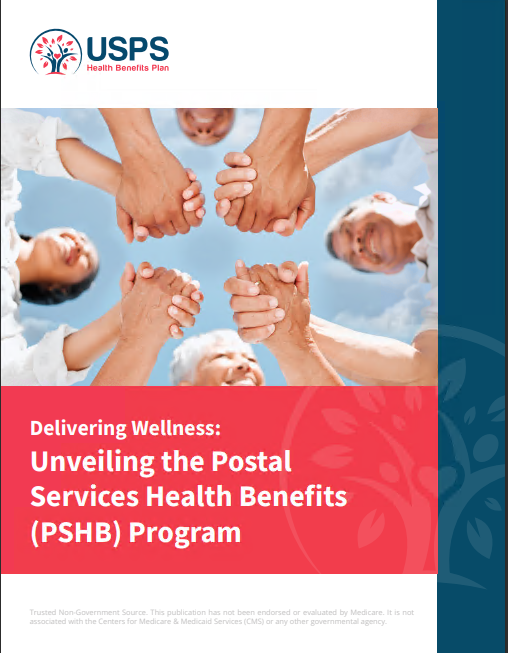Eligibility and Enrollment for USPS Employees
Understanding Medicare eligibility and enrollment processes is crucial for USPS employees nearing retirement age or considering their healthcare options. In this section, we’ll delve into the specifics of Medicare eligibility for USPS employees, including enrollment timelines, potential penalties for late enrollment, and steps to take when transitioning to Medicare coverage. Let’s explore how USPS employees can navigate the eligibility and enrollment process effectively to ensure seamless access to healthcare benefits.
Medicare Eligibility for USPS Employees
Most USPS employees become eligible for Medicare benefits when they turn 65 years old. However, eligibility can also be based on disability or certain medical conditions, such as End-Stage Renal Disease (ESRD). Here’s a breakdown of eligibility criteria:
- Age: Individuals aged 65 and older are typically eligible for Medicare benefits.
- Disability: Individuals under 65 who have received Social Security Disability Insurance (SSDI) for at least 24 months are eligible for Medicare.
- End-Stage Renal Disease (ESRD): Individuals of any age with ESRD requiring dialysis or a kidney transplant may be eligible for Medicare.
Enrollment Timelines and Penalties
Understanding Medicare enrollment timelines is essential to avoid potential penalties and gaps in coverage. For most USPS employees, initial enrollment in Medicare occurs during the Initial Enrollment Period (IEP), which begins three months before the month of their 65th birthday and extends for three months after.
It’s important to enroll in Medicare during your IEP to avoid late enrollment penalties, which can result in higher premiums for Part B (Medical Insurance) and Part D (Prescription Drug Coverage) for as long as you have Medicare coverage.
Transitioning to Medicare Coverage
As USPS employees approach retirement age, they may need to transition from employer-sponsored health insurance to Medicare coverage. Here are steps to consider when making this transition:
- Understand Your USPS Health Benefits: Review your current health insurance coverage through the USPS to understand how it coordinates with Medicare. Some USPS health plans may provide secondary coverage to Medicare, while others may require enrollment in Medicare Parts A and B for primary coverage.
- Enroll in Medicare Parts A and B: If you’re nearing age 65 and eligible for Medicare, enroll in Medicare Parts A and B during your Initial Enrollment Period (IEP) to ensure a seamless transition to Medicare coverage.
- Evaluate Supplemental Coverage Options: Consider supplemental coverage options, such as Medigap (Medicare Supplement Insurance) or Medicare Advantage plans, to help cover out-of-pocket costs not covered by Medicare Parts A and B.
- Understand Prescription Drug Coverage: Evaluate your prescription drug needs and consider enrolling in a Medicare Part D plan to ensure coverage for necessary medications.
- Coordinate with USPS Benefits: Communicate with USPS benefits administrators to understand how Medicare enrollment may affect your USPS health benefits, including any retiree health plans or flexible spending accounts.
Navigating Enrollment Challenges
Navigating Medicare enrollment can be complex, especially for USPS employees transitioning from employer-sponsored coverage. Common challenges include understanding eligibility criteria, enrollment timelines, and coordinating coverage between Medicare and USPS health benefits.
To overcome these challenges, consider seeking assistance from resources such as the U.S. Office of Personnel Management (OPM) or Medicare.gov. These resources provide guidance on Medicare enrollment processes, coverage options, and rights as a Medicare beneficiary.
Additionally, consider consulting with licensed insurance agents specializing in Medicare to receive personalized assistance tailored to your individual needs and circumstances. These professionals can help you navigate the enrollment process, understand your coverage options, and make informed decisions about your healthcare.
Conclusion
As a USPS employee nearing retirement age or considering healthcare options, understanding Medicare eligibility and enrollment is essential for securing comprehensive coverage. By familiarizing yourself with Medicare eligibility criteria, enrollment timelines, and transition steps, you can ensure a smooth transition to Medicare coverage and avoid potential penalties or gaps in coverage.
Remember, you’re not alone in navigating the Medicare maze. Utilize resources such as Medicare.gov, the U.S. Office of Personnel Management (OPM), and licensed insurance agents to receive guidance and support throughout the enrollment process. With careful planning and informed decision-making, you can confidently transition to Medicare coverage and access the healthcare benefits you deserve.
Are you a USPS employee approaching retirement age? Don’t wait until the last minute to explore your Medicare options. Visit Medicare.gov for additional insights, resources, and tools, or access the LiteBlue USPS employee portal for additional resources and support.
Featured Articles
Leave Your Feedback






